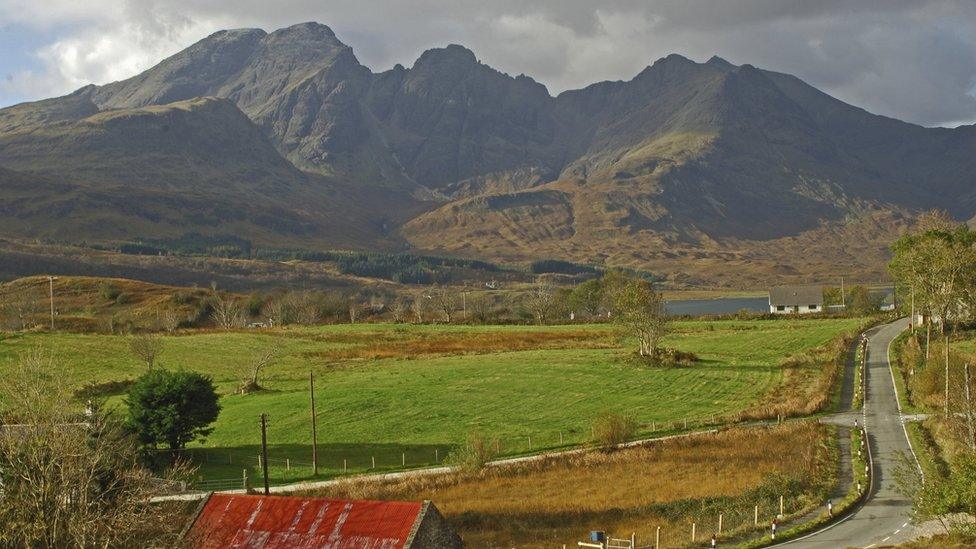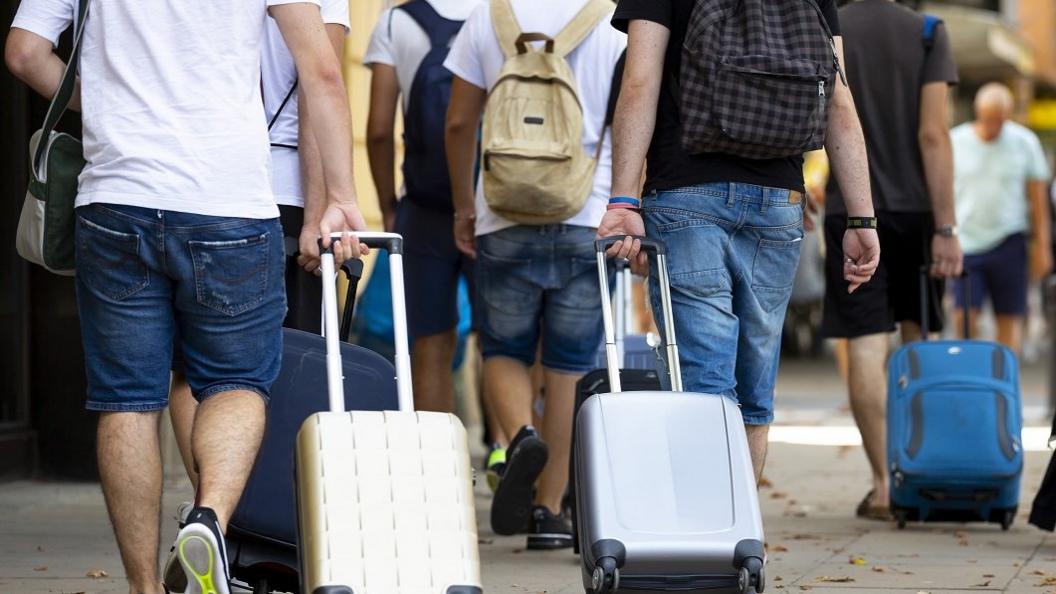Majority backing for controls on Scots short-term lets
- Published

Edinburgh has one of the highest rates of short-term rental properties in Scotland
Airbnb-style lets could be subject to new controls in Scotland after a government consultation found a majority support imposing regulations.
Research commissioned by the government found a three-fold increase in Scottish properties let for short-term use since 2016, with 32,000 recorded in May.
A majority of those who wrote in to the consultation backed reforms, although they were split on what should be done.
Ministers said they would consider the report and set out plans later in 2019.
The Scottish government has pledged to "take action" to "tackle issues" with short-term lets, although they have come under fire from opposition MSPs for stripping back proposed reforms earlier in the year.
A report, external on the impact of such rentals on communities in Scotland - released alongside the consultation results - has found an increase in them in every area of the country.
Short-term letting sites, such as Airbnb and Booking.com, allow owners to rent out their property for a few days at a time. There is no legal definition of the practice in Scotland, making it hard to track.
While short-term lets account for only 1.2% of all properties in Scotland, in some areas this proportion is significantly higher.
More than 2,700 listings were recorded in Edinburgh, with the city's Old Town area found to have 812 active Airbnb listings per square kilometre.
The report also said these properties account for 18.6% of all homes on the island of Skye - nearly double the figure suggested by the Chartered Institute of Housing, external earlier this year.

Skye has the highest proportion of short-term lets in the country
There were more than 1,000 responses to the government's consultation, from local residents, landlords, hosts and community groups as well as people who have stayed in short-term lets as guests.
In general community groups and residents mainly cited negative implications of the practice, such as anti-social behaviour, the "hollowing out" of communities and effects on the housing market, with rents and property prices being driven up.
Meanwhile hosts focused on more positive elements, such as tourism and boosts to local businesses.
Overall, a majority agreed that there should be some form of regulation, although "views were mixed" about whether there should be a licensing or registration scheme.
There was also backing for speedy enforcement of whatever new controls are introduced, although it was noted that a "one size fits all" approach would not be appropriate across Scotland given half of all lets were found to be concentrated in two councils areas - Edinburgh and Highland.
Housing Minister Kevin Stewart said: "Short-term lets can offer people a flexible and cheaper travel option, and have contributed positively to Scotland's tourism industry and local economies across the country.
"However, we know that in certain areas, particularly tourist hot spots, high numbers of short-term lets are causing problems and often making it harder for people to find homes to live in."
"The responses to our consultation confirm support for new controls over short-term letting of residential properties in these problem areas. We will carefully consider the evidence before setting out our proposals later this year."
Control areas
Proposals for more stringent regulation of short-term lets were briefly added to the Planning (Scotland) Bill passed by MSPs in June, but were ultimately watered down.
Green MSP Andy Wightman had amended the bill to require hosts to get planning permission before converting their homes into short-term lets, but this was ultimately altered again by the Conservatives and the SNP to only apply in "control areas" designated by local planning authorities.
At the time, Mr Stewart said changes had to be made without "undermining the economic benefits of tourism", but faced accusations from opposition members that he had "yielded to industry lobbyists".
In response to the latest consultation responses, Mr Wightman said it was "time for the Scottish government to make some serious progress on the issue".
And Labour's Pauline McNeill said there was a "compelling case" for regulation, saying planning permission should be required for whole properties to be let out on a short-term basis.
- Published22 October 2019

- Published15 August 2019

- Published25 April 2019

- Published29 July 2019

- Published19 September 2019
